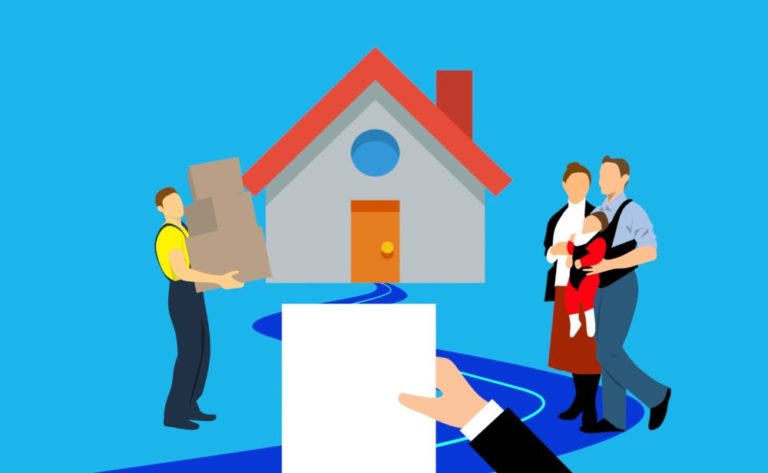How to Move Out After Selling a House
You’ve been through a lot in that place, from the first coat of paint you used to freshen up the trim on your house to the stress of haggling your way to a contract. You’ve been there for a long time. Moving out is the last challenge standing between you and the successful sale of your home. Congratulations!
Relax, this is the simple part, but you still want to make sure you do it correctly. This is how you can complete the final stage of your journey without encountering any difficulties along the way.
How to leave on time when moving out.
The moment the closing documents are signed, the buyers will formally become the owners of the house, and you will no longer be the owner. That being the case, “the buyer could evict you” if you or any of your belongings are still present in the home after the sale has been finalised. Therefore, ensure that you have a plan in place for when you want to leave!
However, the majority of purchasers will be understanding if you need a little bit more time and can provide a valid reason for it, such as the fact that you can’t relocate until the weekend because of your work schedule. Just make sure that you bring up these concerns as quickly as possible before the closing, so that your purchasers can make appropriate preparations.
Determine what you will not take with you.
Check the closing documents twice to ensure that you are honouring the wishes of the buyer and doing so in accordance with the terms that were agreed upon. There must to be an itemised list detailing everything that is included with the residence. Even though the buyers didn’t expressly ask for some goods, it’s still considered polite to leave them behind because certain objects fall under this category.
What about? According to Jarvis, you should always leave everything that is bolted to the wall. “Generally speaking,” he says. “Some homeowners want to take their fans and blinds to the next property, but generally speaking, if it’s screwed in, it stays,” the homeowner said.
Be careful to set up any services, such as alarm monitoring or pest control, that you and the buyers agreed to transfer before you leave the property. Leave a comprehensive notice for the purchasers inside the house, or ask your agency to get in touch with the buyers’ agent to make sure everything goes smoothly with the transfer of ownership.
If you happen to remove an item that the buyers had ordered by mistake, they have the right to ask for it back, and they have the ability to sue you in civil court for the cost of a replacement item if you don’t give it back to them. If you have any questions, you should feel free to ask the people who are buying the items before you grab them and go.
However, you must not forget anything else behind.
What you don’t leave behind is just as significant as what you do leave behind. Your purchasers have the legal right to go into a home that has been cleaned out of the furniture and other movable things that they did not specifically request to be removed from the property.
“Some people leave all kinds of unwanted clothes, furniture, paint cans, and other goods thinking they are assisting the buyers,” adds Jarvis. “Other people think they are helping themselves.” Ask your customers if they would want your old kiddie equipment or planting pots if you have a strong belief that they would appreciate having them, but please don’t make the assumption that they will be happy to get your leftovers.
Even if you take extra precautions, it is possible that you will forget anything, in which case the purchasers may ask their agent to return it to you, but they also have the legal right to either keep it or dispose of it as they see fit. Therefore, it is important to do a thorough search of areas (such as the drawers in the kitchen and bathroom, the attic, the garage, the basement, the storage shed, and so on) where things are frequently forgotten.
Put in order
It is considered to be good manners to not only remove all of your belongings from the location but also to clean it up. Having said that, this does not compel you to leave it in pristine condition. “In most cases, you shouldn’t be required to pay to have it professionally cleaned,”
A quick sweep with the broom should be sufficient in most circumstances. That include cleaning the counter tops, organising the drawers, sweeping or vacuuming all of the floors, and giving the appliances in the kitchen and bathroom a once over to ensure that the new owners won’t be disgusted when they move in.
Are there any more things that come to mind?
Make sure everything is in order by running through a fast checklist right before you lock the door for good. Have you searched each and every room for any misplaced items? Have you made arrangements to have your mail forwarded, as well as switched off the utilities? Is there movement in the water in the pool? Have you abandoned any evidence that could be used to convict you of a heinous crime? (We’re joking about with that last bit, at least we think so.)
You won’t be able to get back in once you move out, so it doesn’t hurt to perform one last walk-through before you go. Even the most well-planned movements result in a certain amount of haste from those involved.
As soon as you are prepared, it is time for us to depart. You should feel free to leave a note, card, or bottle of bubbly congratulating the folks who have inherited your previous home if you are in the mood for genuine graciousness. Given all of the happy times you’ve spent inside those walls, don’t you think it would be lovely to help the new owners get off to a good start in their new home?
And don’t forget to pick up some champagne for yourself. You’ve worked hard, therefore you deserve to enjoy the finer things in life.






